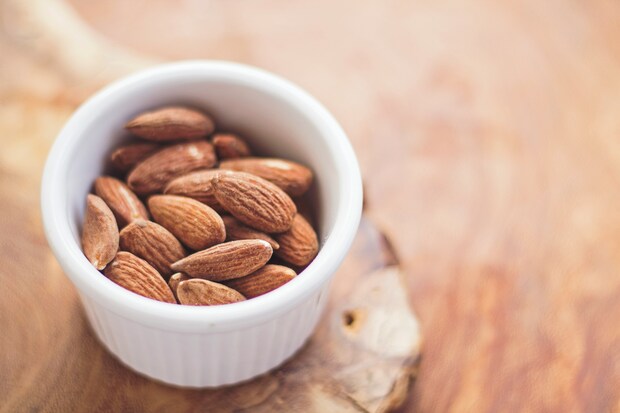
Unlocking the hidden potential of technology, Artificial Intelligence (AI) has swiftly made its way into various industries. From revolutionizing customer service to transforming healthcare, AI’s impact is undeniable. But did you know that it also plays a significant role in expanding global food palates? Yes, you heard it right! AI is not just limited to robots and self-driving cars; it has now become a culinary artist’s best friend, enhancing creativity and pushing the boundaries of gastronomy.
In this blog post, we will explore how AI is contributing to the evolution of our taste buds and fostering cultural exchange through food innovation. So get ready for a mouth-watering journey into the world where technology meets cuisine – let’s delve into the fascinating realm of AI’s contribution to expanding global food palates!
How AI is Enhancing Culinary Creativity
AI, or artificial intelligence, is revolutionizing many industries, and the world of cuisine is no exception. With its ability to process vast amounts of data and learn from patterns, AI has become an invaluable tool in enhancing culinary creativity.
One way AI is doing this is through recipe generation. By analyzing countless recipes from different cuisines and identifying key flavor combinations, AI algorithms can create unique and innovative recipes that push the boundaries of traditional cooking. These AI-generated recipes often combine unexpected ingredients or techniques that result in dishes with exciting new flavors.
AI also assists chefs in experimenting with food pairings. By analyzing the chemical components of various ingredients, AI systems can suggest unlikely but harmonious combinations that may have never been considered before. This opens up a whole new realm of possibilities for chefs looking to surprise their diners with unconventional flavor profiles.
AI-powered robots are making waves in professional kitchens by taking over repetitive tasks such as chopping vegetables or stirring sauces. This allows chefs to focus their time and energy on more creative aspects of cooking, leading to greater innovation in culinary creations.
In addition to these applications within the kitchen itself, AI technologies are also aiding chefs in menu development and restaurant management. Through analyzing customer preferences and feedback data collected online or through reservation systems, AI can provide valuable insights into which dishes are popular among customers and help restaurants tailor their menus accordingly.
By leveraging the power of artificial intelligence tools like recipe generation algorithms, food pairing analysis software, and automated robotic assistants, chefs around the world are expanding their creative horizons.

The Impact on Global Food Palates and Cultural Exchange
Food has always been a powerful medium for cultural exchange, bridging gaps between communities and opening doors to new experiences. With the advent of AI in the food industry, this exchange has reached new heights. AI-powered algorithms can analyze vast amounts of data from different cuisines, ingredients, and cooking techniques, enabling chefs to create unique fusion dishes that blend flavors from around the world.
This culinary innovation not only expands our taste buds but also promotes cultural appreciation. As people try these innovative dishes, they gain a deeper understanding of different cultures and their gastronomic traditions. It fosters a sense of unity among diverse communities by breaking down barriers through shared dining experiences.
AI technology facilitates accessibility to global cuisines like never before. Through recipe recommendation systems based on personal preferences and dietary restrictions, individuals can explore dishes from various corners of the globe without leaving their own kitchens. This democratization of international cuisine allows for cross-cultural learning and eliminates geographical limitations when it comes to trying new foods.
AI contributes to preserving traditional recipes that might otherwise be lost over time or inaccessible due to factors such as language barriers or limited resources. By analyzing historical texts and documentation on traditional cooking methods, AI systems can recreate authentic recipes with precision. This preservation effort ensures that future generations have access to diverse culinary heritage.
It is important to recognize some challenges associated with relying heavily on AI in shaping global food palates. Critics argue that excessive reliance on algorithms may lead to a homogenization of flavors as popular trends are amplified while lesser-known regional cuisines take a backseat.
There is concern about losing the human touch in food preparation if machines completely take over certain aspects of cooking processes. Many believe that true artistry lies in the intuition and creativity inherent in human chefs’ abilities rather than solely depending on data-driven decisions made by machines.
Challenges and Criticisms of AI in the Food Industry
While AI has undoubtedly made significant advancements in the food industry, it is not without its challenges and criticisms. One of the main concerns is the potential loss of traditional culinary skills and techniques as more reliance is placed on AI technology. Some argue that this could lead to a homogenization of cuisine, with unique regional flavors being overshadowed by standardized recipes generated by algorithms.
Another criticism revolves around the ethical implications of using AI in food production. There are concerns about data privacy and ownership when it comes to sharing personal information with AI-driven platforms or apps that offer recipe recommendations. Additionally, there are worries about job displacement as certain tasks once performed by humans may become automated.
Critics question the accuracy and reliability of AI-generated recipes. While these algorithms have improved over time, they still lack human intuition when it comes to flavor combinations and cultural context. The subjective nature of taste makes it challenging for AI to replicate complex flavors accurately.
Some argue that relying too heavily on AI technology takes away from the joy and spontaneity associated with cooking. The element of surprise can often be lost when meals are meticulously planned based on data-driven suggestions rather than experimentation or personal preferences.
Despite these challenges and criticisms, many believe that there is immense potential for collaboration between humans and machines in creating innovative culinary experiences. By acknowledging these concerns early on, we can work towards finding solutions that address them while harnessing the power of AI to enhance our global food palates.
Embracing the Intersection of Technology and Cuisine
As we’ve explored in this article, AI is revolutionizing the culinary world by enhancing creativity, expanding global food palates, and fostering cultural exchange. The marriage of technology and cuisine has allowed chefs to push boundaries and explore new flavors with unprecedented precision.
While there may be some challenges and criticisms surrounding AI’s role in the food industry, it’s important to remember that these technologies are tools meant to assist rather than replace human ingenuity. By embracing AI as a partner in the kitchen, culinary professionals can unlock endless possibilities for innovation while still honoring tradition and cultural heritage.
The integration of AI into our culinary experiences opens doors to previously unexplored tastes from around the globe. It encourages us to step out of our comfort zones, discover new ingredients, and appreciate diverse cuisines like never before. Through this technological advancement, we have an opportunity not only to satisfy our taste buds but also foster greater understanding among cultures.
So let us celebrate the intersection of technology and cuisine! Let us embrace the ways in which AI can enrich our dining experiences by broadening our horizons and expanding our global food palates. By doing so, we will continue on a path towards a more interconnected world where gastronomic exploration knows no bounds!

